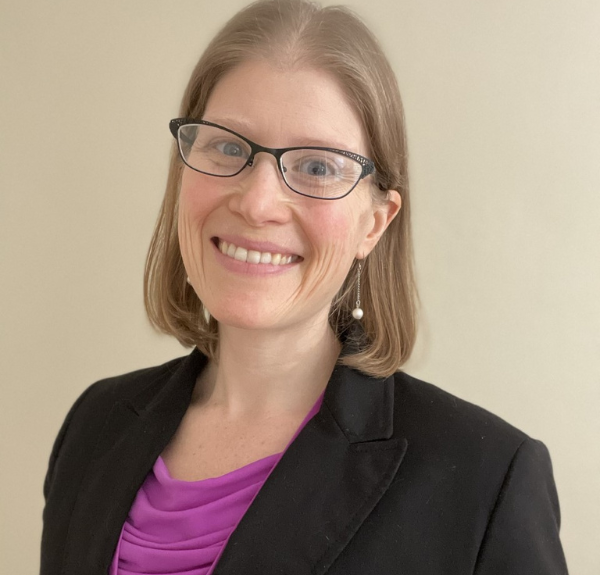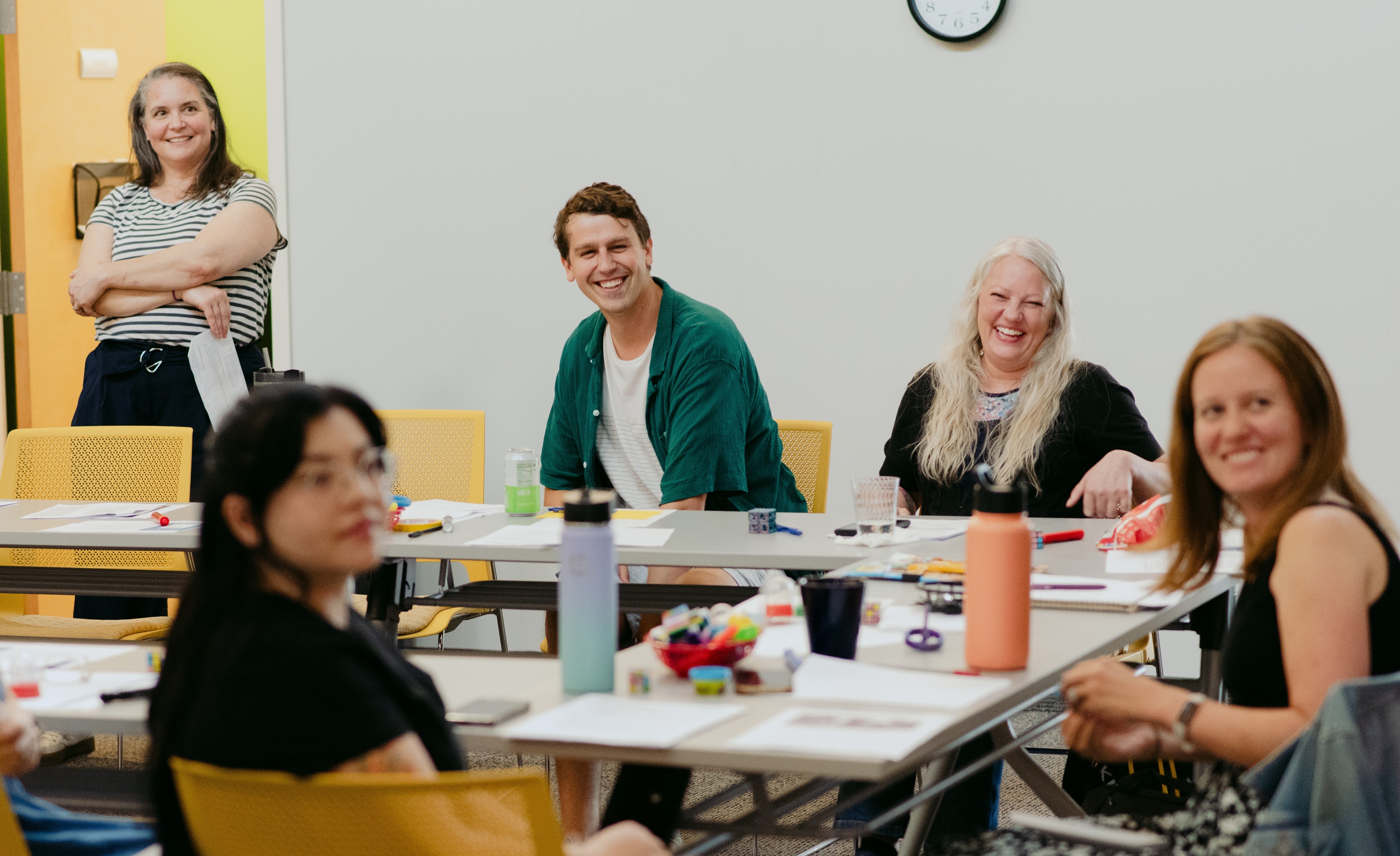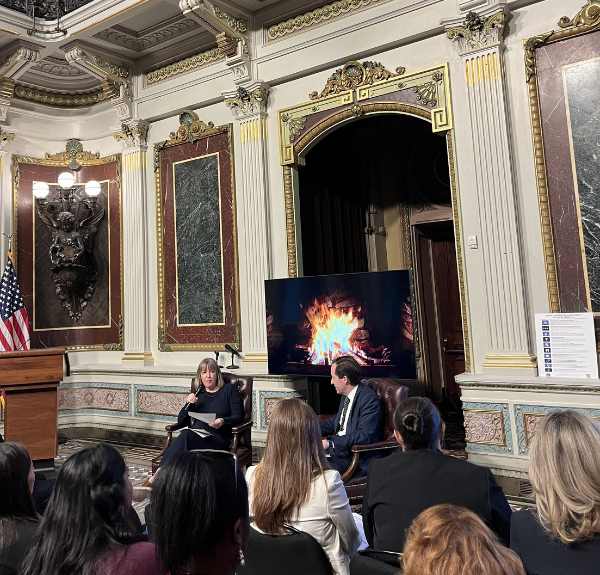Public Participation Opens the Front Door of Government
Public engagement is imperative to delivering excellent, equitable, and secure services to the American people. By actively involving citizens in the decision-making process, governments aim to ensure that the services they provide meet the needs of the people they serve. However, traditional public comment processes can be intimidating, complex, and inaccessible, creating barriers, particularly for historically underrepresented or underserved communities. Agencies across the Government are introducing new ways of engaging the public in the hope of making the process more inclusive and accessible, but it can be hard to know whether these strategies are making a difference.
To address this, Federal agencies need ways to assess the effectiveness of their public participation and community engagement methods. Therefore, the Office of Management and Budget (OMB) took a direct approach to the issue - by directly asking the public for help!
Earlier this year, OMB and the General Services Administration (GSA) launched the PMA Learning Agenda: Public Participation and Community Engagement Evidence Challenge. The focus of this challenge is the design of a toolkit that helps agencies answer the question: “What Public Participation and Community Engagement (PPCE) approaches are effective in increasing reach, improving inclusivity, and promoting public involvement and trust in Federal decision-making?”
The challenge invited experts from the public to first develop a technical concept paper, with three winners advancing to Phase II where they then develop and deliver their detailed evaluation toolkit. The three winners of Phase I of the challenge were:
Performance.gov interviewed the finalists to learn more about why they entered the challenge, their approach in designing the Phase II toolkit, and the importance of public engagement. These finalist profiles do not constitute an endorsement by the Federal Government.
Using Human-Centered Design to Innovate Civic Engagement
Randy Plemel, owner of Expedition Works, joined the challenge because of his passion for human-centered design and accessibility. A trained architect, Randy has extensive experience looking at problems from both micro and macro perspectives and partnering with organizations to provide solutions. His experience includes working with the New York City Civic Engagement Commission to create engaging and safe spaces for residents to provide feedback through art and festivals.

Randy Plemel, Expedition Works
Randy’s firsthand experience with the intimidating nature of public feedback to the Federal Government inspired his participation in the challenge. He emphasized the importance of customization, community, and trust in developing the toolkit, allowing for tailored engagement methods for different issues. The toolkit ensures the Federal Government reaches target audiences, including underrepresented or underserved communities.
“Beyond typical civic engagement that we think of, like voting and jury duty, there are other small points of civic engagement that happen and in the best case scenario, someone comes and says, ‘I was actually listened to.’ They can link what they said to some sort of change in their community,” he shared.
Infusing Accessibility and Fun Into Evaluation Design
The Partnership for Public Service, a nonprofit, nonpartisan organization, aims to build a better government and a stronger democracy. Priyasmita (Priya) Roy and Emily Kalnicky from the Research, Analysis, and Evaluation team brought their experience in evaluation, learning, and community engagement to the PMA Learning Agenda challenge. They designed the toolkit with four key elements in mind: interaction, accessibility, scalability, and fun. Throughout the toolkit, users can engage through voice or interactive elements rather than reading a lengthy PDF. It uses plain-language and key guiding questions to empower the user, regardless of their knowledge or experience with evaluation. Priya and Emily incorporated tools like Microsoft Power BI and artificial intelligence to add interactive elements, including a dashboard and landing page for the toolkit.

Priya Roy, Partnership for Public Service
“Community engagement between the Federal Government and the public is a key ingredient to build systems and policies that are working for everyone, not just a select few. I believe that if they’re designed well, the PPCE really does this by not only better understanding the needs of the public, but it’s directly involving them in the decisions that are going to affect their day-to-day lives and their livelihood,” Emily stated.

Emily Kalnicky, Partnership for Public Service
Building Trust With Plain Language and Robust Evaluation
The Improve Group is a worker-owned evaluation consulting cooperative that provides evaluation, planning, and facilitation to support mission-driven organizations. Their unique background, coupled with the opportunity to instill a culture of learning, motivated their participation in the PMA Learning Agenda challenge. Additionally, the opportunity to build trust in communities by acknowledging the history of those previously left out of the design of policies and systems, and now including them in those designs, was a significant driving force for The Improve Group in designing their toolkit.

The Improve Group
The Improve Group’s proposed toolkit design focuses on accessibility and equity, using plain language to empower users to continuously improve their efforts. It provides guidance on incorporating equity into every step of designing a PPCE evaluation, an essential element for understanding the effectiveness of PPCE activities.
“Our vision for this toolkit is that users are intentional about who they’re trying to engage with from the very beginning, why those communities, and what methods will work best for them. There is no one size fits all solution,” Karissa Propson shared.
Toolkit Coming Soon to a Federal Agency Near You
The winner of Phase II will be announced this month, with the winner receiving $150,000 in prize money from GSA. Additionally, the winner may have the opportunity to collaborate with a Federal agency in a pilot implementation of their evaluation toolkit. We wish all the finalists luck as they continue throughout this challenge!
The PMA Learning Agenda
The President’s Management Agenda (PMA) sets out key priorities for an equitable, effective, and accountable Government that delivers results for all. In addition to these priorities, the teams working to implement the PMA have created goal statements and published priority-level success metrics to measure progress toward achieving the PMA vision.
The PMA Learning Agenda provides Federal agencies and external researchers with a shared set of research questions that are relevant to all Federal agencies. Additionally, it identifies priority evidence needs and aims to galvanize efforts to address them.
We invite you to continue to track our progress with the PMA and Learning Agenda and keep up with events by following Performance.gov on LinkedIn and X and Evaluation.gov on LinkedIn. Subscribe to our newsletter to receive updates straight to your inbox.




